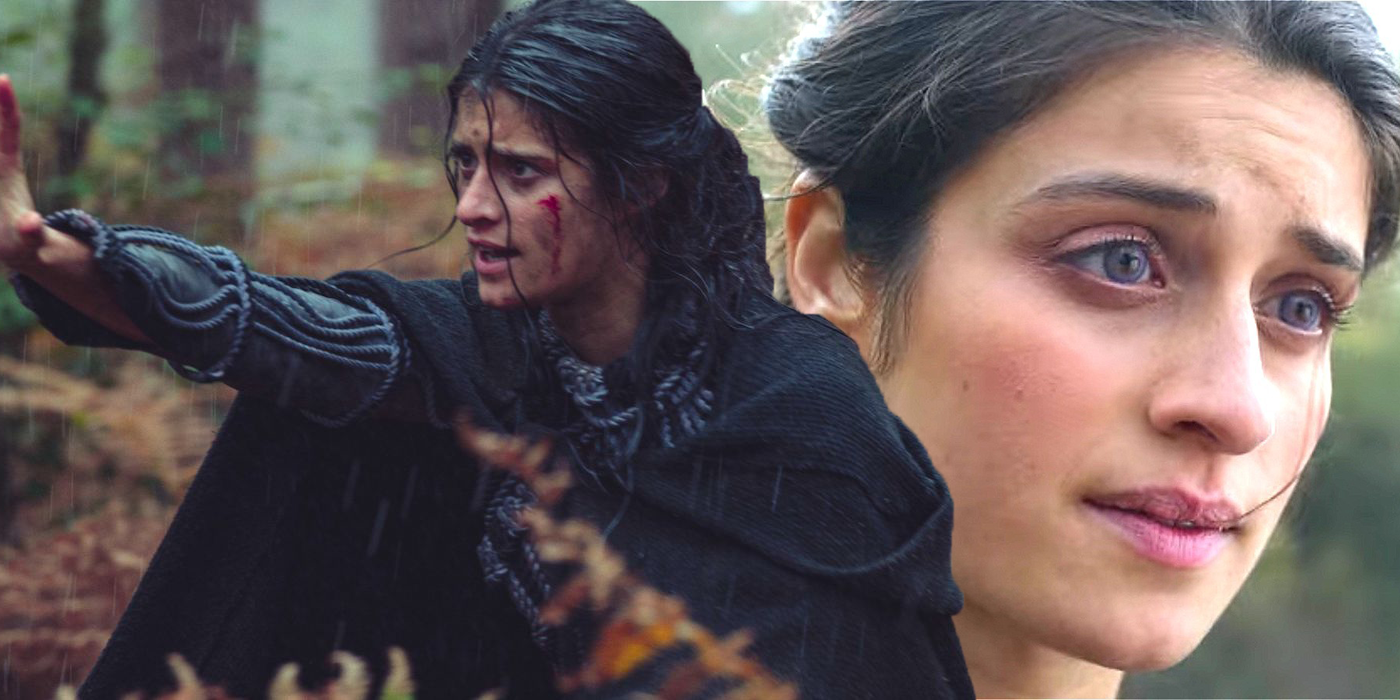
While largely praised, The Witcher season 2 made a number of changes from the books, and the changes to Yennefer’s character have proven especially divisive. Although the season started off strong by relying on Geralt (Henry Cavill) and Ciri’s (Freya Allan) mutual chemistry, it seemed to go downhill the more it strayed from its source material. To its credit, while it still suffers from too much exposition, The Witcher season 2 did a good job of resolving the issue of its convoluted timelines from its debut season. However, it made certain decisions that will affect the show in the long run, and one of those involves the character of Yennefer (Anya Chalotra).
The start of the season saw Yennefer captured by the Nilfgaardians, with her fellow mages assuming that she was killed in the Battle of Sodden Hill. It was the first change made from the books, where she spends a majority of her time in recovery after she was blinded from a fireball cast by Fringilla (played by Mimi Ndiweni in the show). However, in The Witcher, it’s her capture that eventually leads Yennefer to the Deathless Mother, Voleth Meir (Ania Marson), where it’s revealed that she can no longer use magic. The reason why isn’t exactly made clear as the Netflix show seems to follow its own rules for Chaos and magic.
This is the decision that ended up dividing audiences and fans of the books. For starters, it left Yennefer largely powerless for the majority of The Witcher season 2. The larger issue was that Yennefer was left vulnerable to Voleth Meir’s promises as she was desperate to get her magic back, and it led to Yennefer seeking out Ciri for the second half of the season. Yennefer has often been portrayed as a character that carefully treads the line of morality. Despite this, the reason that Yennefer’s betrayal of Geralt this time around has been a controversial issue for viewers is that it places a clear strain on the bond between her and Ciri, changing their story beyond The Witcher season 2. Even with Yennefer’s sacrifice at the end, it will be hard to develop a meaningful relationship when the origin of that relationship was Yennefer being willing to sacrifice Ciri to get her powers back. In the books, Yennefer and Ciri’s relationship is like that of a mother and child, bonding over Yennefer teaching Ciri how to channel her magic properly. While there were bits and pieces of that shown in the TV adaptation, it simply comes across as a lot more predatory since these moments happened when Yennefer was still trying to get Ciri to Voleth Meir.

Taking away Yennefer’s powers gave her a driving motive for The Witcher season 2. However, the character still suffered from only getting her Chaos magic back in The Witcher season 2 finale. Yennefer redeemed herself by being willing to give up her magic to ensure Ciri lived, but it ended up feeling weak because she only changed her mind at the last minute when previously, she hadn’t seem particularly conflicted about selling Ciri out beyond it damaging her relationship with Geralt. A number of narrative issues would have been solved if Yennefer had gotten her powers back sooner, as it would have led to a more satisfying bonding moment between her and Ciri at the Temple and made her sacrifice feel more genuine.
However, The Witcher’s several deviations make it clear that it will be taking a different route from its source material, so it’s quite possible that the writers may be able to take Yennefer’s character arc and build her up stronger for her next appearance. With her powers back, it will be interesting to see what a fully powered Yennefer might be able to teach Ciri. Although little has been revealed about The Witcher season 3 so far, as long as the series addresses character relationships rather than skipping over them, The Witcher will have a better journey ahead.
Go to Source
Author: Aditya Rajan